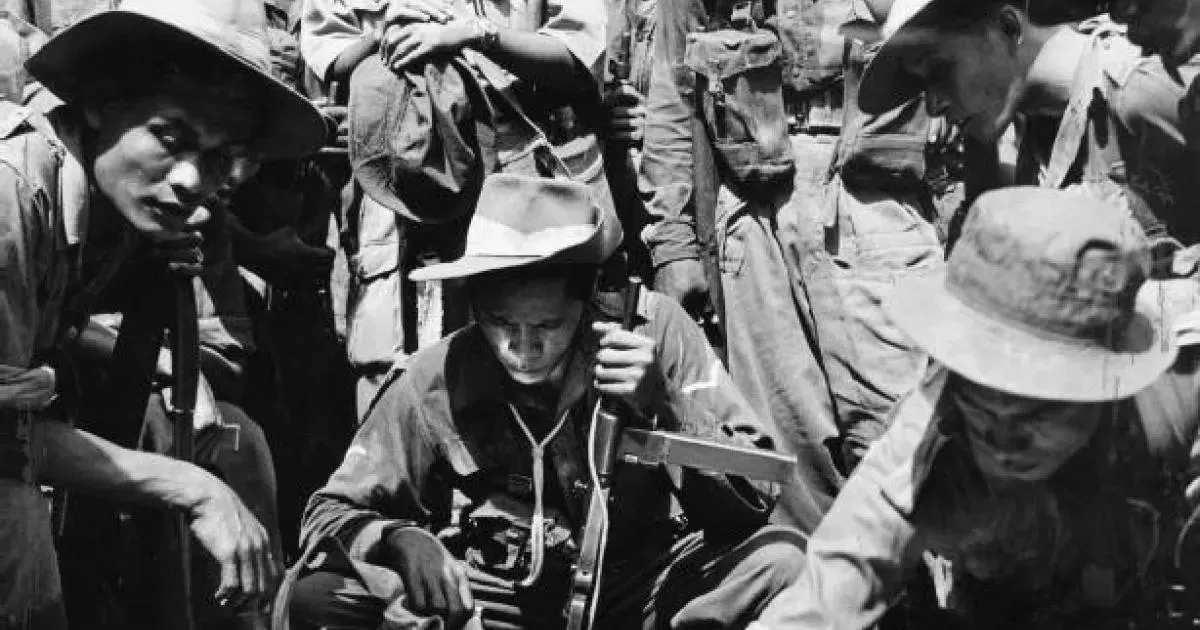A state of emergency grants governments extraordinary powers during crises to ensure citizens' safety. This declaration, typically in response to natural disasters, civil unrest, conflicts, pandemics, or biosecurity threats, allows governments to enact policies usually outside their purview.
1919: Weimar Constitution Establishes Emergency Powers
The Weimar Constitution, adopted in 1919, included Article 48, which granted the government the authority to declare states of emergency to address rebellions or other crises.
1922: Enactment of the Emergency Regulations Ordinance
The Emergency Regulations Ordinance, invoked in various forms throughout Hong Kong's history, was initially implemented in 1922, providing a framework for emergency powers.
1923: End of Revolutions of 1917–1923
The period of revolutions and unrest that began in 1917, including the Russian Revolution, came to an end in 1923.
February 1933: Exploitation of Emergency Powers by the Nazi Regime
Following the Reichstag fire in February 1933, Adolf Hitler utilized Article 48 of the Weimar Constitution to declare a state of emergency. This declaration, coupled with the Reichstag Fire Decree, led to the suspension of civil liberties and paved the way for the Nazi consolidation of power.
1933: End of the Weimar Republic
The Weimar Constitution, including its emergency provisions under Article 48, came to an end in 1933 with the rise of the Nazi regime.
1937: Article 28.3.3° of the 1937 Constitution of Ireland
In 1937, Ireland declared that a state of 'national emergency' involves Article 28.3.3° of the Constitution of Ireland.
1939: Passage of the Emergency Powers Act 1939
In 1939, after the outbreak of the Second World War, the Oireachtas passed the First Amendment, enabling the Emergency Powers Act 1939, granting the government sweeping powers.
1939: Activation of Parts V and VI of the Offences Against the State Act
In 1939, during the Second World War, Parts V and VI of the Offences Against the State Act were activated, providing for a non-jury Special Criminal Court and internment.
1939: First Amendment of the Constitution of Ireland
In 1939, the First Amendment of the Constitution allowed an emergency to be declared during wars in which the state is a non-belligerent, subject to resolutions by the houses of the Oireachtas.
1940: Amendment to the Offences Against the State Act
In 1940, an amendment to the Offences Against the State Act allowed for internment, continuing the measures activated in 1939.
1941: Second Amendment of the Constitution of Ireland
In 1941, the Second Amendment stated that an emergency ends not automatically when the war does, but only by Oireachtas resolutions.
1945: Emergency Defence Regulations Passed
In 1945, under the British Mandate for Palestine, the Emergency Defence Regulations were passed, allowing Israel to control movements and prosecute suspected terrorists.
1946: Expiration of the Emergency Powers Act 1939
In 1946, the Emergency Powers Act 1939 expired, although some orders continued under subsequent acts.
1948: State of Emergency Declared in Response to Communist Insurgency
In 1948, the colonial government of Britain declared a state of emergency to deal with a communist insurgency led by Chin Peng.
1951: End of Rationing
In 1951, rationing in Ireland, which had continued under various provisions, finally ended.
1952: State of Emergency Replaced by Martial Law
In a significant shift in Poland's legal framework, the institution of the state of emergency was absorbed into the institution of martial law between 1952 and 1983.
April 1955: France Establishes a Legal Framework for States of Emergency
In April 1955, France enacted the Act of 3 April 1955, providing a legal basis for declaring a "state of emergency" and outlining procedures for its implementation.
1957: Expiration of Continued Orders
In 1957, some Emergency Powers Orders continued under the Supplies and Services (Temporary Provisions) Act 1946 until this year.
1958: Establishment of Egypt's Emergency Law
Egypt's Emergency Law (Law No. 162 of 1958) was established in 1958, laying the groundwork for its later use during times of crisis.
1958: France Utilizes Emergency Provisions During Algerian War
France invoked emergency powers granted under Article 16 of its Constitution and the 1955 Act during the Algerian War in 1958, highlighting the use of these measures in times of crisis.
1958: Essential Services Act Passed in Victoria
The Essential Services Act of 1958 in Victoria, Australia, outlined provisions for managing essential services, such as transport and utilities, during emergencies.
1958: Public Safety Preservation Act Passed in Victoria
The Public Safety Preservation Act of 1958 in Victoria, Australia, granted the Premier the authority to declare states of emergency to address threats to public safety and order.
1960: End of the State of Emergency
In 1960, the state of emergency declared in 1948 to deal with a communist insurgency ended.
1962: State of Emergency during Konfrontasi
In 1962, a state of emergency was declared during the Konfrontasi, an undeclared war between Indonesia and Malaysia.
1962: State of Emergency Imposed, Centralizing Power
The year 1962 marked the beginning of a prolonged state of emergency in Syria, initially justified by the ongoing conflict with Israel. This state of emergency, lasting for decades, concentrated authority in the presidency and the national security apparatus.
1966: State of Emergency during Sarawak Constitutional Crisis
In 1966, a state of emergency was declared during the Sarawak constitutional crisis.
1967: Implementation of Emergency Law during the Six-Day War
Egypt imposed a state of emergency under the 1958 Emergency Law during the Six-Day War, marking the beginning of an extended period of emergency rule.
1967: Reconsideration of the Emergency Regulations
In 1967, a repeal of the Emergency Defence Regulations was briefly considered but cancelled following the Six-Day War.
May 1968: West Germany Amends Constitution to Include Emergency Provisions
In May 1968, West Germany amended its Basic Law to incorporate Emergency Acts, outlining provisions for limiting certain constitutional rights during states of emergency or defense.
1969-05-13: State of Emergency Declared During Race Riot
On 13 May 1969, a state of emergency was declared during a race riot.
1969: American Convention on Human Rights Adopted
The American Convention on Human Rights, adopted in 1969, aimed to restrict the abuse of states of emergency by requiring signatory nations to report their circumstances and durations.
1970: October Crisis in Canada
In 1970, Canadian Prime Minister Pierre Trudeau invoked the War Measures Act during the October Crisis, a controversial decision that sparked debates about civil liberties.
1972: Continuous Activation of Part V
Since 1972, Part V of the Offences Against the State Act has been continually active, providing for a non-jury Special Criminal Court.
1974: State of Emergency Declared in Response to Industrial Action
Prime Minister Edward Heath declared a state of emergency in 1974 in response to escalating industrial action.
November 1975: State of Siege Declared During Attempted Coup
During Portugal's Third Republic, a state of siege, representing an exceptional suppression of constitutional provisions, was declared in November 1975. This measure was implemented within the Lisbon Military Region in response to a failed left-wing coup attempt.
1976: New State of Emergency Declared
In 1976, a new state of emergency was declared in Ireland in relation to the Troubles in Northern Ireland and the assassination of the British ambassador. The Emergency Powers Act 1976 was passed to increase police powers.
1977: State of Emergency during Kelantan Emergency
In 1977, a state of emergency was declared in response to the Kelantan Emergency.
1977: International Emergency Economic Powers Act Enacted
The United States enacted the International Emergency Economic Powers Act in 1977, granting the government authority to respond to international threats.
1977: State of Emergency Declared Following Devastating Earthquake
The devastating 1977 Vrancea earthquake in Romania led to the enforcement of a state of emergency, highlighting the gravity of the situation and the need for extraordinary measures to address the disaster's aftermath.
1979: National Emergency Declared Regarding Iran
A national emergency was declared by the United States in 1979 in response to the situation with Iran.
1980: Brief Reprieve from Emergency Law in Egypt
Egyptians experienced an 18-month break from the Emergency Law in 1980 and 1981, a brief respite in its otherwise continuous enforcement since 1967.
1981: Reimposition of Emergency Law after Sadat's Assassination
Following the assassination of President Anwar Sadat, Egypt reimposed the Emergency Law in 1981, continuing its use to address security concerns.
1983: Transition from Martial Law to State of Emergency
Martial law in Turkey was replaced by a state of emergency in 1983.
1983: Martial Law Lifted, State of Emergency Provisions Reinstated
The year 1983 marked the end of the period during which martial law superseded the state of emergency in Poland, with the latter's provisions being reinstated in the constitutional framework.
1984: Emergency Measures in New Caledonia
France employed emergency measures in 1984 to address violent pro-independence revolts in New Caledonia, showcasing their application in territorial conflicts.
1984: Argentina Ratifies American Convention on Human Rights
In 1984, immediately following the end of the National Reorganization Process, Argentina ratified the American Convention on Human Rights, which had been adopted in 1969.
1985: Brazil Transitions to Sixth Republic
Since the end of the military dictatorship and the establishment of the sixth Brazilian Republic in 1985, the country has not declared a state of emergency.
1986: Emergency Management Act Passed in Victoria
In 1986, Victoria, Australia, enacted the Emergency Management Act, providing a framework for managing various emergencies, including natural disasters, terrorism, and health crises.
1989: State Emergency and Rescue Management Act Passed in New South Wales
The State Emergency and Rescue Management Act of 1989 in New South Wales provided the framework for declaring states of emergency in response to threats like fires, floods, and other emergencies.
1990: State of Emergency Declared During Black Power Revolution
In 1990, during the Black Power Revolution in Trinidad and Tobago, then-Prime Minister Eric Williams declared a state of emergency. This period was marked by social and political upheaval, prompting the government to take extraordinary measures to maintain order and stability.
August 1991: August Coup in Soviet Union
In August 1991, coup leaders in the Soviet Union (USSR) invoked a state of emergency in an attempt to seize power. The coup ultimately failed, leading to the dissolution of the Soviet Union.
1992: Law on Civil Protection
In 1992, Italy implemented the Law n. 225 on Civil Protection, allowing the Council of Ministers to implement a state of emergency without parliamentary vote.
1994: Provisional IRA's Ceasefire
In 1994, the Provisional IRA declared a ceasefire, which prompted confidence-building measures leading to the end of the 1976 state of emergency.
August 1995: State of Emergency Used to Remove House Speaker
In August 1995, Trinidad and Tobago experienced a constitutional crisis during which Prime Minister Patrick Manning declared a state of emergency. This declaration enabled the government to invoke emergency powers and remove House Speaker Occah Seepaul, a move that sparked controversy.
1995: End of the 1976 State of Emergency
In 1995, as part of the Northern Ireland peace process, the 1976 state of emergency was rescinded to satisfy physical force republicans after the Provisional IRA's 1994 ceasefire.
1997: New Constitution Defines State of Emergency Provisions
Poland's 1997 Constitution brought forth comprehensive regulations concerning states of emergency, outlining the circumstances under which they could be declared, the limitations on their duration, and the constraints on governmental power during such periods.
1997: Absence of Declared States of Emergency in Hong Kong
Since 1997, following the transfer of sovereignty from Britain, Hong Kong has not declared a formal State of Emergency, despite facing various challenges.
1997: State of Emergency Act Enacted, Defining Emergency Powers
South Africa established a legal framework for states of emergency with the enactment of the State of Emergency Act in 1997. This legislation, operating in conjunction with Section 37 of the Constitution, outlines the specific conditions under which a state of emergency may be declared, the process for declaration and extension, and the role of the judiciary in reviewing such declarations.
1998: Human Rights Act Enacted
The Human Rights Act was enacted in 1998.
1999: Legislative Amendment to Emergency Regulations Ordinance
Hong Kong's Legislative Council amended the Emergency Regulations Ordinance in 1999, shaping its application in the context of the Special Administrative Region.
1999: No Emergency Measures Enacted
Since 1999, no emergency measures have been enacted in the unspecified context.
2/1997: UN Special Rapporteurs Recommend Principles for States of Emergency
In February 1997, UN Special Rapporteurs Nicole Questiaux and Leandro Despouy presented principles for states to observe during states of emergency to the international community. The principles aimed to prevent abuses and protect human rights.
November 2002: Lifting of State of Emergency in Turkey
Turkey's state of emergency, in place since 1983, was lifted in November 2002.
2002: Twenty-First Amendment of the Constitution of Ireland
In 2002, the Twenty-First Amendment prevented the reintroduction of capital punishment during an emergency.
2002: Civil Defence Emergency Management Act Enacted
The year 2002 marked a significant development in New Zealand's approach to emergency management with the enactment of the Civil Defence Emergency Management Act. This legislation empowered the national government, as well as local councils, to declare states of emergency encompassing the entire country or specific regions when necessary.
December 2004: State of Emergency Declared After Devastating Tsunami
In December 2004, following the catastrophic Indian Ocean Earthquake and Tsunami, a state of emergency was declared in the Maldives. The tsunami inflicted widespread destruction upon the nation's infrastructure, severing communication links across vast stretches, decimating islands, and forcing the closure of numerous resorts.
2004: Civil Contingencies Act Enacted
The Civil Contingencies Act, outlining emergency powers, was enacted in 2004.
2005-08-11: State of Emergency Declared Due to Severe Haze
On 11 August 2005, a state of emergency was declared for Port Klang and Kuala Selangor after air pollution reached dangerous levels.
2005: Giorgio Agamben's Critique of State of Emergency
In 2005, political philosopher Giorgio Agamben published "State of Exception," a critique of the concept of the state of emergency. Agamben argued that states of emergency can be used to unjustly deprive individuals of their civil and political rights.
2005: France Declares State of Emergency During Riots
In response to widespread riots in 2005, France declared a state of emergency, highlighting the use of this measure to address civil unrest.
2006: Multiple States of Emergency Declared in New South Wales
By 2006, New South Wales had declared states of emergency on five separate occasions, highlighting the state's vulnerability to various emergencies.
2007-11-13: European Commission Envoy's Statement on Malaysia's State of Emergency
On 13 November 2007, Thierry Rommel, the European Commission's envoy to Malaysia, stated that the country still lives under a state of emergency due to prolonged use of the Emergency Ordinance and the Internal Security Act.
2008: Public Health and Wellbeing Act Passed in Victoria
The Public Health and Wellbeing Act of 2008 in Victoria, Australia, granted the Chief Health Officer significant powers to address public health risks during emergencies.
December 2010: First State of Alert Declared Since Franco Era
In December 2010, Spain declared its first state of alert since the era of Francisco Franco, signifying a break from the past and the utilization of emergency powers in response to a national crisis.
August 2011: State of Emergency Declared in Trinidad and Tobago
In August 2011, Prime Minister Kamla Persad-Bissessar declared a state of emergency to address drug and firearm trafficking and gang violence.
September 2011: Parliamentary Debate and Extension of State of Emergency
The state of emergency was debated in Parliament in September 2011, as required by the Constitution, and was subsequently extended for three months.
December 2011: State of Emergency Declared in Parts of Northern Nigeria
In December 2011, a state of emergency was declared in parts of Yobe, Borno, Plateau, and Niger states in Nigeria, reflecting the growing security concerns in these regions. This initial declaration included a temporary closure of international borders in the affected areas.
December 2011: End of State of Emergency
The state of emergency in Trinidad and Tobago concluded in December 2011.
May 2012: Temporary Expiration of Egypt's Emergency Law
In May 2012, Egypt's Emergency Law, in place since 1967 with a brief break in 1980-1981, expired. The law had granted extensive powers to the police, suspended constitutional rights, and legalized censorship.
2012: New Constitution Outlines Emergency Powers
Syria's 2012 constitution introduced a new framework for emergency powers, granting the president the authority to issue emergency decrees with the concurrence of two-thirds of the ministers.
January 2013: Reinstatement of Emergency Law in Egypt
Egypt's Emergency Law, which had expired in May 2012, was put back in place in January 2013 following a period of political unrest.
May 2013: State of Emergency Expanded in Northeastern Nigeria
In May 2013, President Goodluck Jonathan declared a state of emergency across the entire northeastern states of Borno, Yobe, and Adamawa in Nigeria. This expansion of the state of emergency, which had been initially declared in parts of these states in December 2011, aimed to address the escalating insurgency in the region.
2013-06-23: State of Emergency Declared Due to Southeast Asian Haze
On 23 June 2013, Prime Minister Najib Razak declared a state of emergency for Muar and Ledang, Johor due to severe Southeast Asian haze.
August 2013: State of Emergency Declared in Egypt
Following the 2013 coup d'état, Egypt's interim president declared a one-month state of emergency on August 2013 in response to deadly clashes between supporters of deposed President Mohamed Morsi and security forces.
December 2013: Special Security Zone Established in Pungești Amidst Civil Unrest
In December 2013, a special zone of public safety, akin to a state of emergency, was enforced in Pungești, Vaslui, Romania, in response to civil unrest sparked by Chevron's shale gas exploration plans in the village.
December 2015: State of Emergency Declared in Washington State Due to Flooding
Washington state Governor Jay Inslee declared a state of emergency in December 2015 in response to severe flooding and landslides.
2015: Multiple National Emergencies Ongoing
As of 2015, the United States had over twenty active national emergencies declared under the IEEPA.
2015: Biosecurity Act Passed in Australia
Australia passed the Biosecurity Act in 2015, outlining provisions for declaring a human biosecurity emergency in the event of a severe health threat.
2015: State of Emergency Following Paris Terrorist Attacks
France declared a state of emergency in 2015 following a series of coordinated terrorist attacks in Paris, underscoring the use of emergency measures to respond to security threats.
July 2016: State of Emergency Declared After Coup Attempt
Following a failed coup attempt, President Recep Tayyip Erdoğan declared a state of emergency in Turkey in July 2016.
2016: State of Emergency Declared in Response to Severe Drought
Namibia declared a state of emergency in 2016 to address a severe drought that was gripping the nation. This measure underscored the severity of the situation and allowed the government to implement necessary relief efforts.
February 2018: State of Emergency Declared Amidst Political Crisis
In February 2018, President Abdulla Yameen of the Maldives declared a 15-day state of emergency. This action was taken in response to a deepening political crisis, during which security forces were ordered into the Supreme Court, resulting in the arrests of former President Maumoon Abdul Gayoom and the Chief Justice.
July 2018: Lifting of State of Emergency
The state of emergency in Turkey, implemented in 2016 after a coup attempt, was lifted in July 2018.
February 2019: State of Emergency Declared to Address Rape and Sexual Violence Crisis
In a significant move to address the alarming rates of rape and sexual violence, Sierra Leone declared a state of emergency in February 2019. This action underscored the government's commitment to tackling this critical issue.
October 2019: Hong Kong Implements Anti-Mask Law
In October 2019, Hong Kong's Chief Executive Carrie Lam invoked the Emergency Regulations Ordinance to implement a ban on face coverings at public assemblies. The move, aimed at quelling ongoing protests, sparked controversy and legal challenges.
November 2019: Hong Kong High Court Rules on Emergency Ordinance
In November 2019, the High Court of Hong Kong ruled that parts of the Emergency Regulations Ordinance were incompatible with the Basic Law, but allowed for its use in specific emergency situations.
November 2019: Temporary Suspension and Appeal of the High Court Ruling
In November 2019, the Hong Kong High Court granted a temporary suspension of its ruling on the Emergency Regulations Ordinance, allowing the government to appeal the decision.
November 2019: High Court Acknowledges Importance of Emergency Powers
The Hong Kong High Court, in November 2019, acknowledged the significance of emergency powers in addressing exceptional circumstances while emphasizing the need for their constitutionality.
November 2019: State of Emergency Declared in New South Wales for Bushfires
The Premier of New South Wales declared a state of emergency in November 2019 in response to the devastating bushfires. This marked the fifth such declaration since 2006.
2019-11-26: High Court Announces Appeal Hearing Date
On 26 November 2019, the High Court announced that the hearing for the government appeal against the judgment is scheduled for 9 January 2020.
2019-11-27: Court of Appeal Extends Interim Suspension
On 27 November 2019, the Court of Appeal extended the interim suspension of the judgment until 10 December 2019.
2019-12-10: Court of Appeal Refuses to Suspend Ruling
On 10 December 2019, the Court of Appeal refused to suspend the 'unconstitutional' ruling by the Court of First Instance on the anti-mask regulation. The full hearing is scheduled for 9 January 2020.
January 2020: New South Wales Extends State of Emergency for Bushfires
The state of emergency in New South Wales continued into January 2020, with subsequent declarations extending the initial period. The bushfires had a devastating impact.
2020-01-31: Italy Declares State of Emergency for COVID-19
On 31 January 2020, the Parliament of Italy approved a state of emergency due to the COVID-19 pandemic, allowing the government to implement administrative acts without parliamentary approval.
March 2020: Second State of Alert Declared Amidst COVID-19 Pandemic
As the COVID-19 pandemic gripped the globe, Spain declared its second state of alert in March 2020, underscoring the severity of the health crisis and the government's efforts to contain the virus.
March 2020: State of Emergency Declared in Response to COVID-19 Pandemic
As the COVID-19 pandemic spread globally, Sierra Leone declared a 12-month state of emergency in March 2020. This measure, announced by (Rtd) Brigadier Julius Maada Bio, aimed to curb the virus's transmission and mitigate its impact on the nation's health system and population.
March 2020: Australia Declares Nationwide Human Biosecurity Emergency
In March 2020, Australia declared a nationwide human biosecurity emergency due to the COVID-19 pandemic, granting the Health Minister broad powers to manage the crisis.
April 2020: Consideration of the Emergencies Act during COVID-19
In April 2020, Prime Minister Trudeau considered invoking the Emergencies Act at the beginning of the COVID-19 pandemic. However, he faced unanimous disapproval from all thirteen provincial and territorial premiers.
October 2020: Third State of Alert Declared to Control Pandemic
With the COVID-19 pandemic posing ongoing challenges, Spain declared its third state of alert before the end of October 2020, demonstrating the government's commitment to containing the virus and safeguarding public health.
2020: States Enact States of Emergency Due to COVID-19
Numerous states declared states of emergency in 2020 in response to the COVID-19 pandemic.
2021-01-12: State of Emergency Declared in Response to COVID-19
On 12 January 2021, a nationwide state of emergency was declared in Malaysia by Yang di-Pertuan Agong Abdullah of Pahang, at the request of Prime Minister Muhyiddin Yassin. The state of emergency is planned to end on 1 August 2021.
2021-02-25: Announcement on Parliamentary Sessions During State of Emergency
On 25 February 2021, Yang di-Pertuan Agong announced that the parliament can be convened during the state of emergency.
May 2021: State of Emergency Declared in Response to COVID-19 Surge
In May 2021, Prime Minister Keith Rowley declared a state of emergency due to a severe surge in COVID-19 cases, deaths, and healthcare system strain in Trinidad and Tobago.
2021-08-01: Planned End of COVID-19 State of Emergency
On 1 August 2021, the nationwide state of emergency in Malaysia declared due to the COVID-19 pandemic is planned to end.
November 2021: Ethiopia Declares State of Emergency
On November 2021, the Ethiopian government issued a six-month state of emergency in response to the escalating Tigray War and the rebel advance.
2021-12-31: End of Italy's COVID-19 State of Emergency
On 31 December 2021, the state of emergency in Italy, declared due to the COVID-19 pandemic, was planned to end.
February 2022: First Use of the Emergencies Act in Canada
On February 2022, Prime Minister Justin Trudeau invoked the Emergencies Act for the first time in response to the Freedom Convoy 2022 protests in Ottawa. The House of Commons approved the invocation with support from the Liberal and New Democratic parties.
2024: State of Emergency Declared in New Caledonia
In 2024, France declared a state of emergency in New Caledonia following a series of deadly riots, demonstrating the ongoing relevance of emergency measures in maintaining order.
4/1981: Organic Law Regulates States of Emergency
Spain's Organic Law 4/1981, enacted on 4/1981, provides a comprehensive framework for regulating states of emergency. This law elaborates on the constitutional provisions, specifying procedures for declaration, implementation, and oversight of different degrees of emergency measures.
Mentioned in this timeline

Justin Trudeau served as the rd Prime Minister of Canada...
Nigeria is a West African nation the most populous in...
The Union of Soviet Socialist Republics USSR existed from to...

Martial law is the imposition of military rule in place...
New Zealand is an island country in the southwestern Pacific...
Hong Kong is a densely populated special administrative region of...
Trending

3 minutes ago Kansas City Man Steals Greyhound Bus, Leading Police on I-29 Chase

3 minutes ago Armie Hammer's Post-Scandal Life: Therapy, Fatherhood, Acting Comeback, and SNL Satire.
1 hour ago Minnesota Lawmakers and Police Push for Complete Ban on Cryptocurrency ATMs to Curb Scams

1 hour ago Gloria Trevi celebrates birthday with a Latin party at BMO Stadium, LA.
2 hours ago Ohio EPA considers allowing data centers to release wastewater into rivers; Moreno opposes.
2 hours ago Shogakukan apologizes, cancels manga after creator's sex crime conviction revealed; trust betrayed.
Popular

Jesse Jackson is an American civil rights activist politician and...

XXXTentacion born Jahseh Dwayne Ricardo Onfroy was a controversial yet...

Hillary Diane Rodham Clinton is a prominent American politician lawyer...

Kashyap Pramod Patel is an American lawyer who became the...

Barack Obama the th U S President - was the...

Michael Joseph Jackson the King of Pop was a highly...
